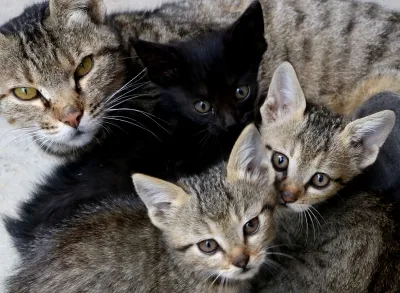Alert in Chhindwara: H5N1 Detected in Cats, Normalcy Expected Post March 4

Synopsis
Key Takeaways
- H5N1 virus detected in domestic cats in Chhindwara.
- Meat, chicken, and egg markets are closed.
- Residents advised to seek medical attention for flu-like symptoms.
- Precautionary measures include a 21-day market closure.
- Ongoing surveillance in a 10 km radius.
Bhopal, Feb 28 (NationPress) Normalcy is anticipated to resume after March 4 in Chhindwara town, following the detection of the H5N1 virus in domestic cats. The markets for meat, chicken, and eggs have been shut down, and residents are urged to seek medical attention at government hospitals if they experience any flu-like symptoms.
The entire tribal-dominated district has been on heightened alert since February 10. This marks the first instance in India where domestic cats have tested positive for bird flu.
On January 10, as reported by a senior government official, 99 domestic cats showed signs of illness and were taken to a veterinary hospital, where two of them were found to carry the H5N1 virus. Although avian influenza typically does not affect humans, there are rare cases where individuals have contracted the virus, with symptoms ranging from mild illness to severe disease, sometimes resulting in death.
“The virus may have been transmitted from chicken to these cats, which were fed by their owners,” a senior government official stated, adding, “Currently, only the local chicken and meat market has been closed for 21 days.”
The H5N1 virus, which is commonly linked to birds, has now been identified in cats. Consequently, the district administration has enacted precautionary measures, including a 21-day ban on the sale and purchase of mutton, chicken, and eggs. Meat and poultry shops in the affected regions have also been sealed.
The cats were brought to the local veterinary hospital, where doctors struggled to diagnose their condition. After initial treatment attempts, the medical team notified the Bhopal district lab. A group of experts traveled to Chhindwara and collected samples for further analysis.
“To investigate the outbreak, samples from several cats were dispatched to Pune’s National Institute of Virology on January 15 and 22. By February 10, the results confirmed the presence of the H5N1 virus in two samples. Acting promptly, the administration focused on the source of the infection,” Dr. HGS Pakshwar, Deputy Director of the Animal Husbandry Department in Chhindwara, informed IANS via telephone.
He also mentioned that raw meat samples were collected from shops associated with the diets of the affected cats. The discovery of bird flu at these stores led to the destruction of related meat and eggs, alongside a 30-day closure of these establishments.
Furthermore, samples from 65 individuals who were in contact with the infected cats were tested. “All results returned negative. However, health officials are staying alert, with ongoing monitoring within a 10 km radius,” he added.
To mitigate the spread, authorities disposed of 40,000 eggs and culled 500 hens and chickens.









